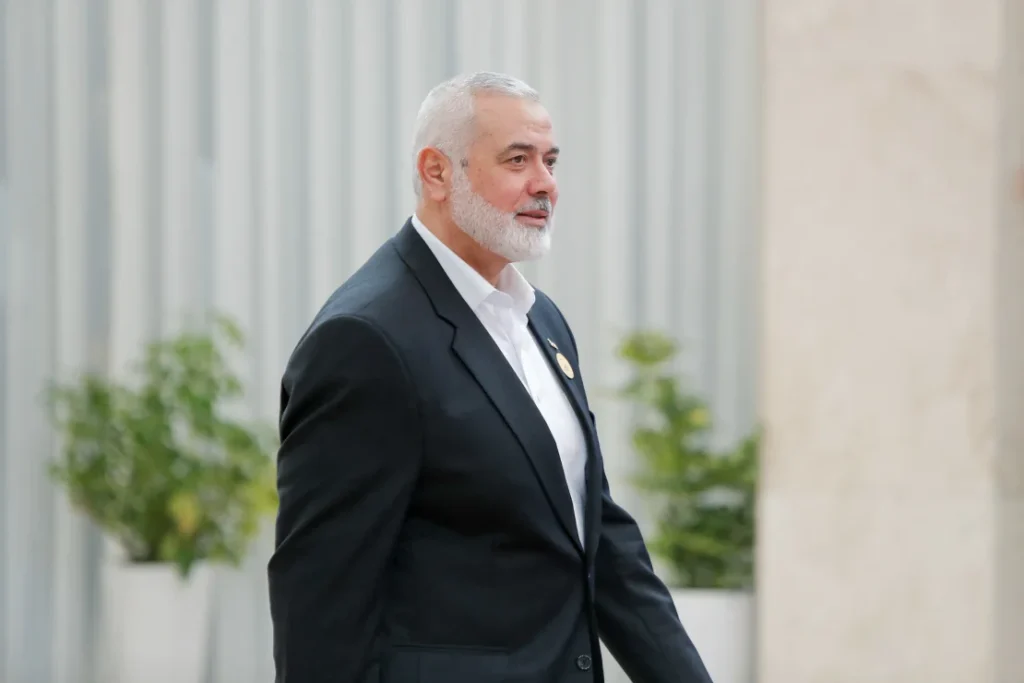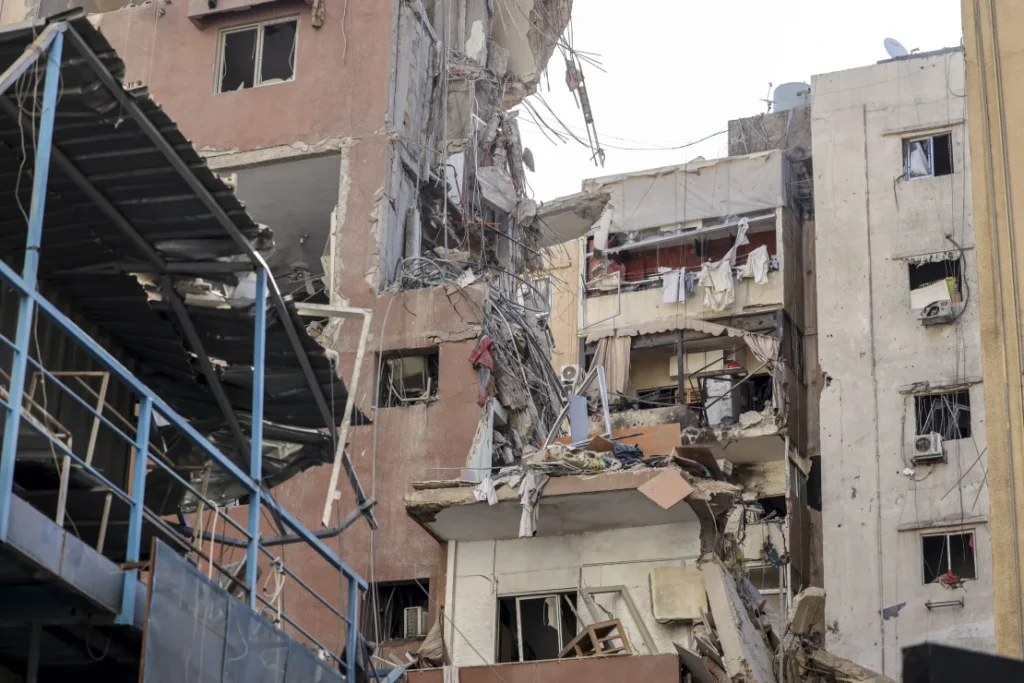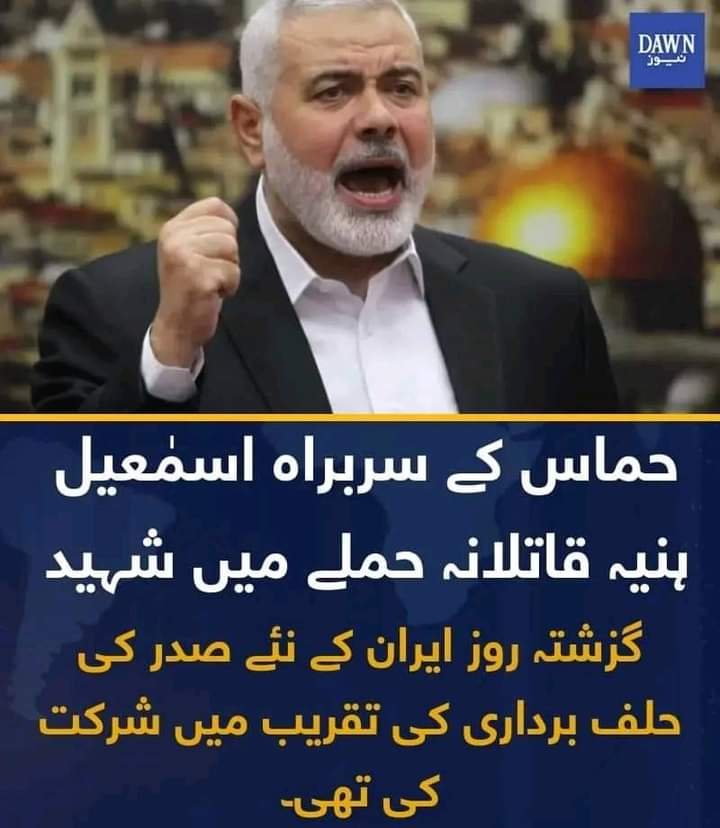Hamas political leader Haniyeh assassinated in Iran, plunging Middle East conflict into dangerous new phase

Ismail Haniyeh is a Palestinian political leader and a prominent figure within the Hamas movement. He was born on January 29, 1963, in the Shati refugee camp in Gaza. Haniyeh has served in various leadership roles within Hamas, including as the head of its political bureau.
Haniyeh became the Prime Minister of the Palestinian Authority in 2006, following Hamas’s victory in the legislative elections. His tenure as Prime Minister was marked by significant tension and conflict with Fatah, the rival Palestinian faction. Which led to a violent split between the two groups and the eventual division. Of the Palestinian territories into Hamas-controlled Gaza and Fatah-controlled parts of the West Bank.
His leadership has been associated with the continuation of the Israeli-Palestinian conflict. And he has been a controversial figure in international politics. With varying responses from different governments and organizations around the world.
Would you like to know more about his political career or any specific events related to him?
Ismail Haniyeh Early Life and Education
Ismail Haniyeh was born into a Palestinian refugee family in the Shati (Beach) refugee camp in Gaza. He completed his higher education at the Islamic University of Gaza, where he earned a degree in Arabic literature. During his time at university, Haniyeh was active in student politics and became involved with the Islamic Association. A student group affiliated with Hamas.
Hamas political leader Ismail Haniyeh killed in Iran
Haniyeh joined Hamas, an Islamist militant group founded in 1987, early in its formation. By the early 1990s, he was a key figure within the group’s political bureau.
Political Career
2006 Legislative Elections: Haniyeh’s prominence increased significantly. When Hamas won a majority in the Palestinian Legislative Council elections held in January 2006. As a result, he was appointed Prime Minister of the Palestinian Authority (PA). This victory was a major political shift, reflecting widespread dissatisfaction with the existing Fatah-led government. Its handling of the peace process with Israel.
Internal Conflict with Fatah:
The election result led to a power struggle between Hamas and Fatah. Tensions escalated into violent clashes, culminating in a split between the two factions. In June 2007, after intense fighting, Hamas took control of Gaza, while Fatah retained control over the West Bank. This division has persisted, leading to separate governance structures and ongoing political and territorial disputes.
His leadership has been marked by efforts to consolidate Hamas’s control over Gaza and manage the ongoing conflict with Israel.
International Relations and Controversies
Haniyeh’s leadership has been marked by a complex relationship with the international community:
- Israel: Haniyeh is a staunch opponent of Israel. His leadership has overseen several conflicts with Israel, including multiple rounds of violence and military operations. Hamas’s rocket attacks and Israel’s retaliatory strikes have contributed to a severe humanitarian crisis in Gaza.
- Egypt and Other Arab States: Relations with Egypt have fluctuated. Particularly due to Egypt’s role in mediating peace talks and its concerns over Hamas’s ties to the Muslim Brotherhood. Some Arab states have had varying degrees of support or opposition to Hamas, reflecting broader geopolitical dynamics.
- Western Nations: Many Western countries, including the United States and the European Union. Consider Hamas a terrorist organization and have imposed sanctions. This has affected international aid and diplomatic efforts involving Gaza.
Recent Developments
In recent years, Haniyeh has continued to advocate for Palestinian rights and resistance against Israeli policies. His role has been significant in maintaining Hamas’s political and military stance. But his leadership remains a focal point of contention in the broader Israeli-Palestinian conflict.
His tenure has also been characterized by efforts to improve living conditions in Gaza. Despite severe economic blockades and restrictions imposed by Israel and Egypt. Despite ongoing international criticism and regional challenges, Haniyeh remains a central figure in Palestinian politics.
Ismail Haniyeh’s role within Hamas and the broader Palestinian political landscape has involved navigating complex and often contentious internal dynamics. Here’s an overview of how Haniyeh has interacted with various factions and interests:
Internal Dynamics within Hamas
- ** Power Struggles: Within Hamas, there have been internal power struggles and factionalism, especially between different wings of the organization. Haniyeh has had to balance competing interests between the political and military wings of Hamas. While he leads the political bureau, the military wing, known as the Izz ad-Din al-Qassam Brigades. Plays a crucial role in the group’s activities.
- ** Leadership Roles: Haniyeh’s leadership in Gaza often puts him in a position of dealing with various factions within Hamas. His approach to governance and strategy sometimes leads to differences with other leaders who may have different priorities or methods.
Relations with Other Palestinian Factions - ** Fatah: The relationship between Hamas & Fatah has been one of the most significant sources of tension in Palestinian politics. Following the 2006 legislative elections and the subsequent violent conflict in 2007. Which resulted in Hamas taking control of Gaza and Fatah retaining control of the West Bank. Relations between the two factions have been strained. Haniyeh has been a key figure in the ongoing rivalry. Which has involved attempts at reconciliation as well as periods of intense conflict.
- ** Palestinian Authority (PA): The PA, led by Fatah, and Hamas have often had conflicting policies and objectives. Haniyeh’s position has frequently put him at odds with the PA’s leadership, particularly over issues related to governance. Peace negotiations with Israel, and the administration of Palestinian territories.
Relations with Regional and International Actors
1. ** Egypt: Historically, Hamas has had a complicated relationship with Egypt. Under former President Hosni Mubarak, Egypt viewed Hamas with suspicion due to its connections with the Muslim Brotherhood. However, relations have fluctuated with the changes in Egyptian leadership. Haniyeh has had to navigate these diplomatic waters carefully, especially with Egypt’s role in mediating ceasefires and peace talks.
2. ** Other Arab States: Relations with other Arab states vary. Some, like Qatar, have been relatively supportive of Hamas and its leadership. Others, particularly those with strained relationships with Iran or the Muslim Brotherhood, have been less supportive. Haniyeh’s diplomacy involves managing these diverse relationships to secure support for Gaza and Hamas.
3. ** Iran: Hamas has historically received support from Iran, including financial and military assistance. This relationship has been influential in shaping Hamas’s policies and actions. Haniyeh has had to balance this alliance with the broader political dynamics in the region.
Current Dynamics
As of the most recent updates, Haniyeh continues to lead Hamas and navigate the complex political. Landscape involving both internal Hamas dynamics and external relations. His leadership remains influential in shaping the organization’s strategy and policies. Especially in the context of ongoing conflicts with Israel and internal Palestinian political developments.
For the most current information, especially regarding recent events or changes in dynamics, checking the latest news sources is recommended.

Killing will ‘complicate’ ceasefire talks
Haniyeh is the second one Hamas senior leader to be killed because the struggle in Gaza commenced. In January, the organization said the deputy head of its political bureau. Saleh Al Arouri, changed into killed in an Israeli airstrike in Beirut. Arouri became taken into consideration one of the founding individuals of Hamas’s navy wing, the Izz ad-Din al-Qassam Brigades.
The impact of any single death in Hamas’. Management shape is hard to predict given the institution’s significant and opaque network. And it’s been capable of climate the loss of life of different key leaders before. Which includes the slaying of its co-founders Sheikh Ahmed Yassin and Abdel Aziz Rantisi, killed weeks aside in 2004.
But Haniyeh’s loss of life leaves Hamas without. Its public political figurehead, and probably represents a primary setback to its worldwide operations. It would not be predicted to dramatically impact its military attempt. However his dying may bring symbolic weight at some stage in the business enterprise.
